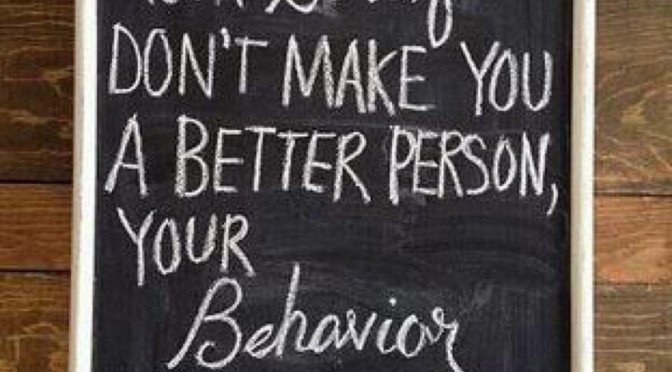In church circles there is a lot of exercise around the idea that there is dichotomous relationship between our beliefs and our actions. This is particularly evident between the groups Phyllis Tickle refers to as the Social Justice Christians (ie. the Mainliners) and the Conservative Christians (conservative evangelicals and Southern Baptists). In this paradigm, one group is overly focused on what we do to bring about the Kingdom of God and the other is overly focused on believing the right things so that we can get to heaven. It is a self-conscious tug-of-war between Christians who see almost nothing in common between their belief systems. Of course, this is all fabricated ridiculousness to divide us.
One of my favorite analogies is whenever people talk about men and women being totally different I trot out the one biological fact I know: chimpanzees and bonobo apes have 99% identical DNA to humans. So if we are 99% the same chimps and bonobos, then how out of proportion are we blowing up that 1%? Clearly the same case could be made for Christians, but that isn’t my purpose precisely. It is this: the dichotomy is false and intentionally so.
I came across this picture on Facebook yesterday that I found compelling. Personally compelling. It was also compelling in light of that false understanding of human belief and behavior.

Jesus’s method was to encourage action that demonstrates active belief. He really did seem to make the proverbial case of being what we eat. Our actions are an outpouring of our internal thinking. This is why He was so concerned with not only the lust we express, but the lust we don’t. The lust in our hearts is as corrupting as anything. But this isn’t solved by restricting behavior or simply adopting the right creed. The lust in our hearts and the lust we express aren’t changed by adopting our church’s statement of belief and just thinking harder. Human psychology doesn’t work that way. That is why it is statistically true that dieters gain weight rather than lose it. We cannot will ourselves to be different simply by adopting either a new external belief system or changing our expected behavior. It comes from having internal and external transformation. We have to get that better eating is good for us, not simply understand it.
In directing us to see sin as not simply outward action, but internal struggles that are beyond our intellectual debates, but operate in our base, human urges, we can come to see that there is no difference or separation between our beliefs and our actions. They are, in fact, the same. They are also inseparable. And ironically, both Social Justice and Conservative Christians make that very case.
The difference between how we perceive these two (belief and action), however, and how they function is significant. Just as they are inseparable, they are also (together) demonstrable, in both positive and negative action. We demonstrate our belief at the soup kitchen and when we cut funding for food stamps and Head Start. We demonstrate our belief when we discourage rape in Africa and when we encourage the killing of LGBT in those same countries. Our belief is on display when we advocate for The Other and when we sit on our hands.
The sole difference between the two is a belief that our actions should be prioritized in any way other than Spirit-filled Kingdom building. Giving preference to evangelism over justice, or vice versa. Giving preference to worship over politics. Giving preference to internal community-building and preservation at the expense of the outside world. We can intellectualize our faith to be solely about our own stuff and our own prejudice. We can compartmentalize it to be something that exists only in our heads or only in our hands. We can pretend that Christianity can be boiled down to a simple theological statement, or worse, a single verse, or worst, the verse’s very name: John 3:16. As if making a public declaration of that, and only that, is what constitutes belief and action.
What matters, in the end, is who we are. And that word “are” is a verb. It isn’t the most active verb there ever was, but there you go. Who we are. We aren’t our beliefs. We are who we are to the world. It isn’t an intellectual exercise, but an engaging, Spirit-led experience of our community and our struggles. Who we are is what we do with others and what drove us there.
Trying to split the hairs at the 1% difference masks the reality that our beliefs and actions are misaligned. And we like it that way. That’s how we recruit people to our camp. How destructive are we?

Leave a Reply